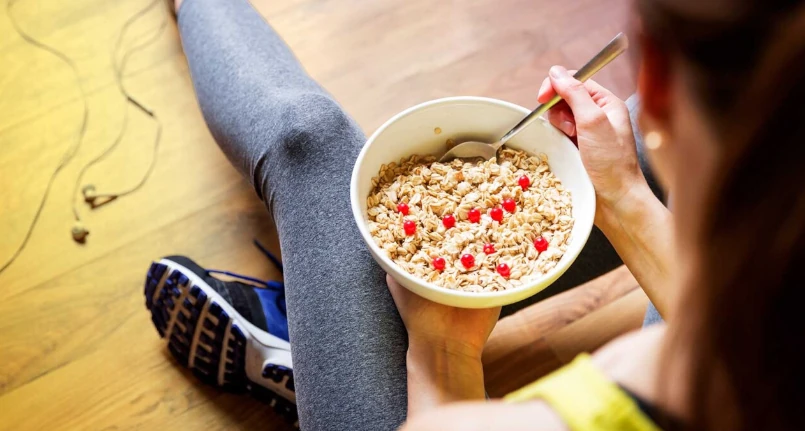Introduction
Self-isolation at home is certainly one of the best ways to protect yourself from Covid-19 . However, being stuck at home can lead to some unhealthy behaviors, including overeating due to stress and boredom—called “ emotional hunger . ” After all, food offers great comfort during times of stress. However, overeating on a regular basis can negatively affect your health and increase your stress and anxiety levels .
Pandemic anxiety and stress are also generating much more bruxism phenomena .
Anyone who frequently eats excessively and in a disordered way and has a bad relationship with nutrition and their body should seek support from a nutritionist or doctor. If, on the other hand, the attraction for food is only temporary and dictated by the needs of this particular moment, it is possible to improve the situation. Here are some ways to prevent emotional hunger and food stress when you’re stuck indoors.
Stop and reflect
One of the most helpful ways to prevent emotional eating is to try to understand why it occurs . There are many reasons why we tend to overeat, including being stressed or bored. If you find yourself eating too often or too much in one meal, take a minute. First, it’s important to ask yourself if you’re eating because you’re hungry and need nourishment or if there’s another reason . Before eating, pay particular attention to how you feel, for example if you feel agitated, tense, sad, anxious . Simply pausing and assessing the situation can help you understand what drives you to overeat and can help prevent emotional eating in the future.
Eliminate temptations
Having tempting foods close at hand promotes emotional hunger. Studies conducted in this field have shown that visual exposure to high-calorie foods stimulates the striatum , a part of the brain that modulates impulse control, leading to an increased risk of overeating . For this reason, it’s best to keep particularly tempting foods , such as sugary baked goods , candy, chips, and cookies, out of sight , such as in a pantry or closet .
Follow a healthy diet
You shouldn’t change your regular eating schedule just because you’re stuck at home. If you’re used to eating three meals a day, try sticking with that schedule even if you’re remote working . While it’s easy to drift away from your normal eating routine when your daily schedule is disrupted, it’s important to maintain a semblance of normalcy when it comes to eating . Sure, you can adjust your diet a bit to accommodate the new normal, but it’s best to maintain a regular eating pattern based on individual needs and usual times . If you find yourself snacking constantly, try making a plan that includes at least two solid meals a day.
Don’t restrict calories too much
One of the most important nutritional rules to follow to prevent emotional hunger is not to deprive your body of food. Often times, being overly restrictive with your food intake or consuming too few calories can lead to overeating and overeating . It’s never a good idea to go on a highly restrictive diet or deprive yourself of food, especially during times of stress. Research has shown that restrictive dieting is not only ineffective for long-term weight loss , but can also damage physical and mental health and increase stress levels.
Spend time cooking
Not being able to eat out forces you to cook your own meals at home, which often results in improved overall health. For example, a study of 11,396 people showed that consuming home-cooked meals more frequently in the study group was associated with higher fruit and vegetable intake . It also found that people who ate home-cooked meals more than 5 times a week were 28% less likely to be overweight and 24% less likely to have excess body fat , compared with those who ate home-cooked meals. cooked at home less than 3 times a week. Take advantage of this period to come back or start cooking healthy. Inter alia,cooking can help pass the time , decreasing temptations and emotional hunger.
Hydrate yourself
Being stuck at home gives you more time to focus on healthy habits, including drinking enough fluids. Maintaining proper hydration is important for overall health and can help fight emotional hunger. In fact, studies have found an association between chronic dehydration and an elevated risk of obesity . Additionally, being dehydrated can lead to changes in mood, alertness and energy levels, which can also affect eating habits. To combat dehydration, add a few slices of fresh fruit to the water to make its taste more pleasant : in this way you could be more tempted to drink, without adding a significant amount ofsugar or calories to your diet.
Move
Being stuck at home can take a toll on activity levels, leading to boredom, stress, and an increased risk of emotional hunger. To counteract this problem, make time for daily physical activity . If you’re feeling lost due to the gym closing , try something new like a YouTube home workout , a hike in nature, or just a walk around your neighborhood. Research has shown that physical activity can boost your mood and reduce stress , which may reduce your chances of stress-only eating.
The Covid pandemic has also increased the cases of Diogenes Syndrome .




